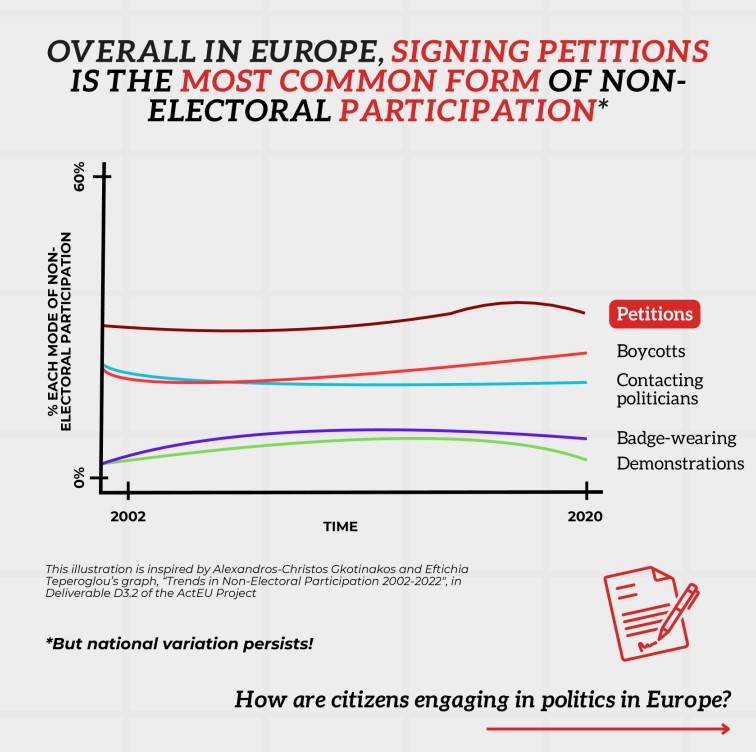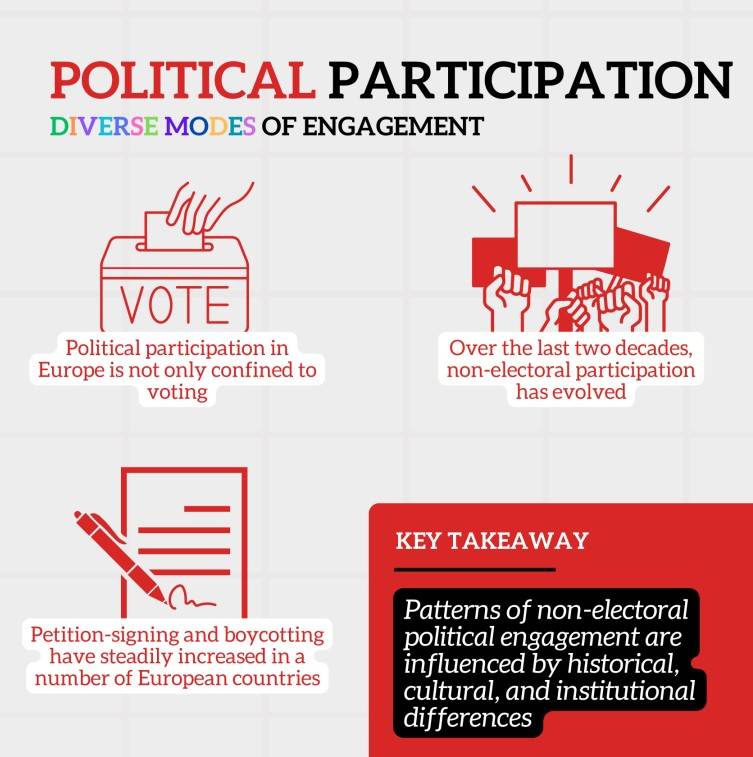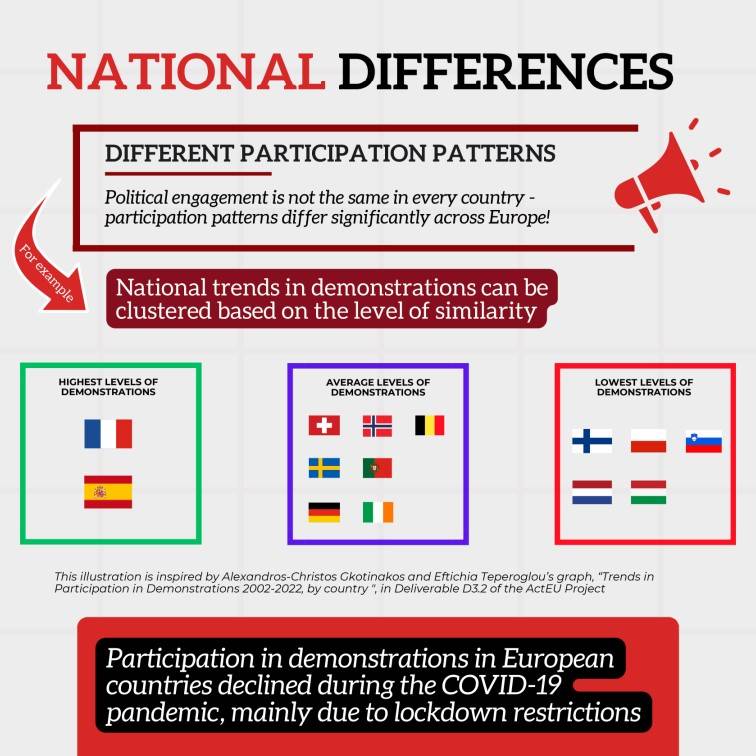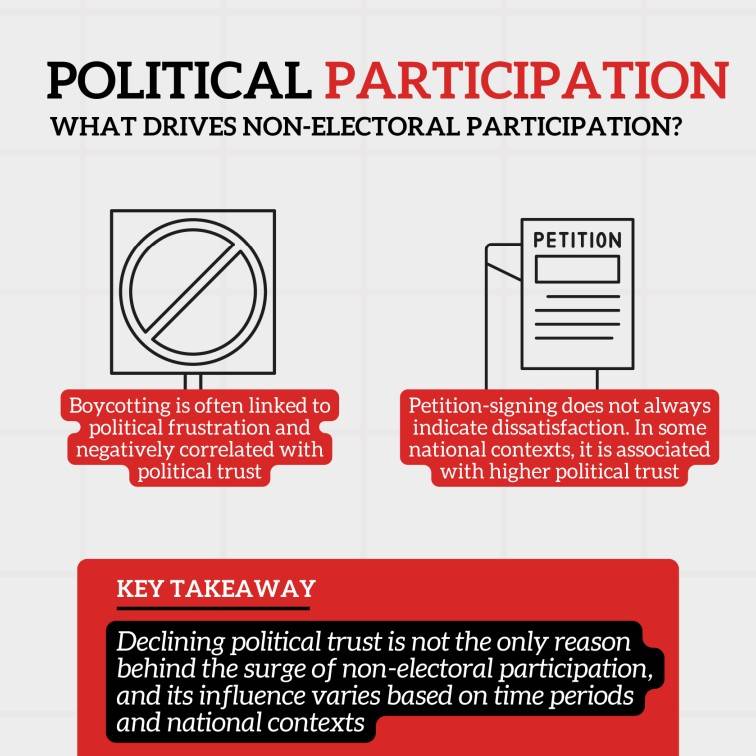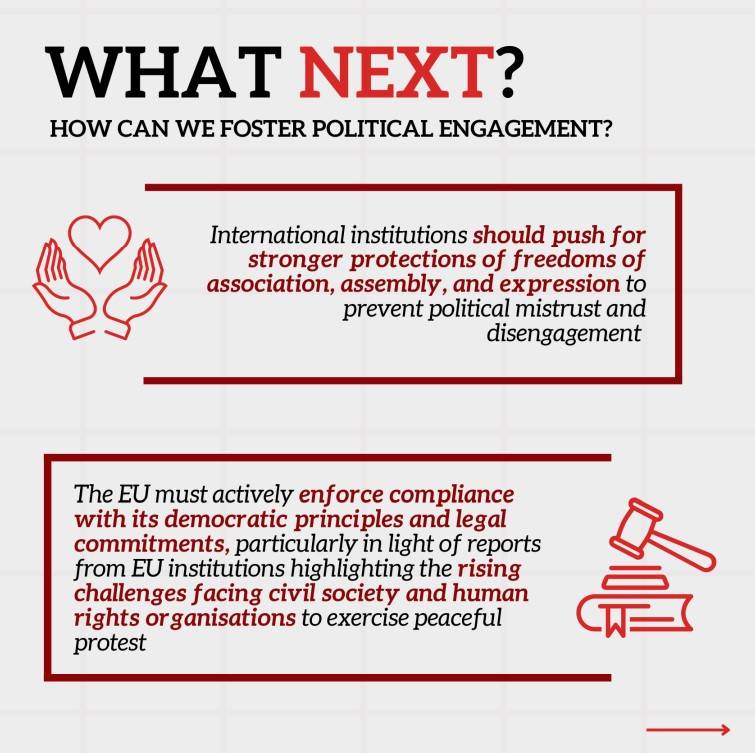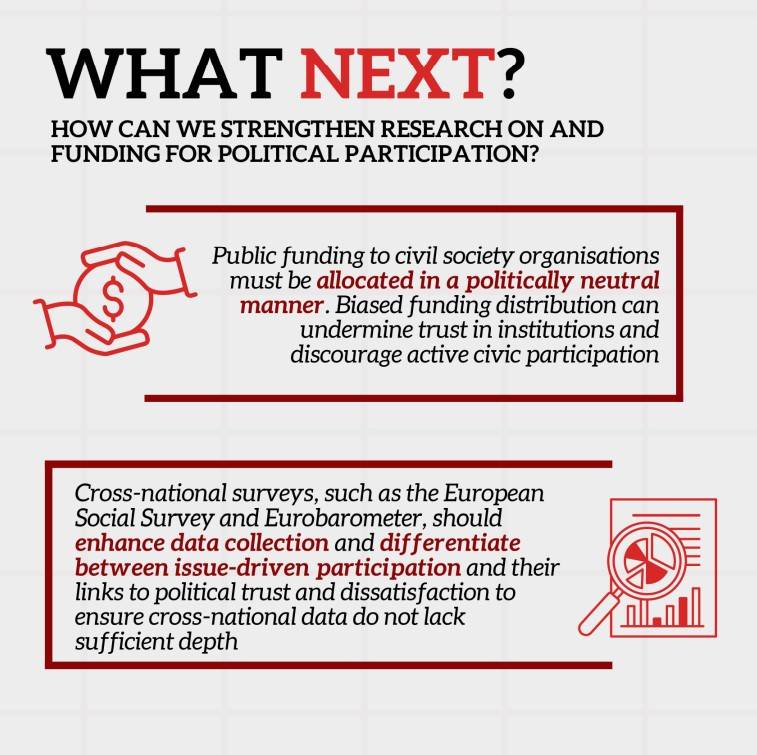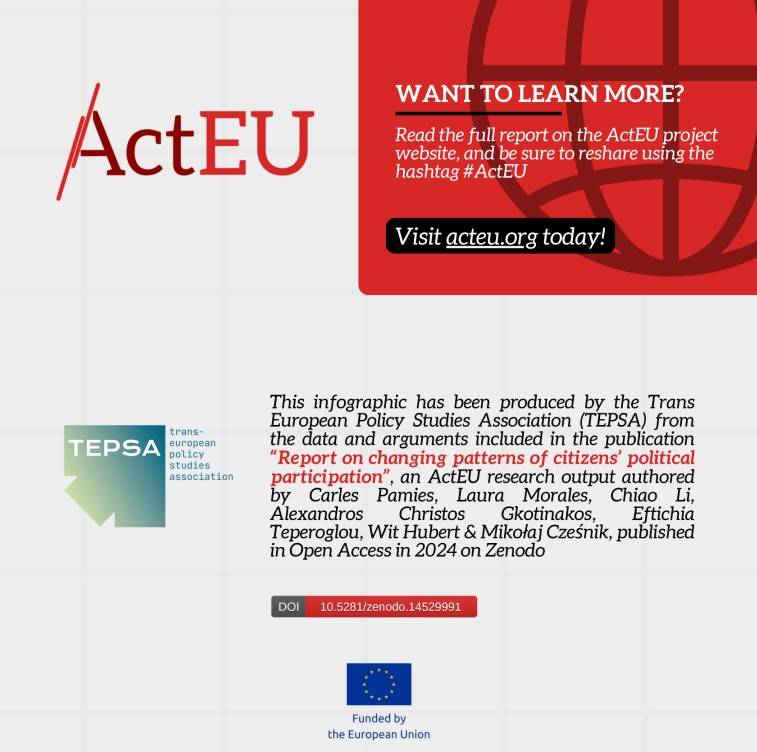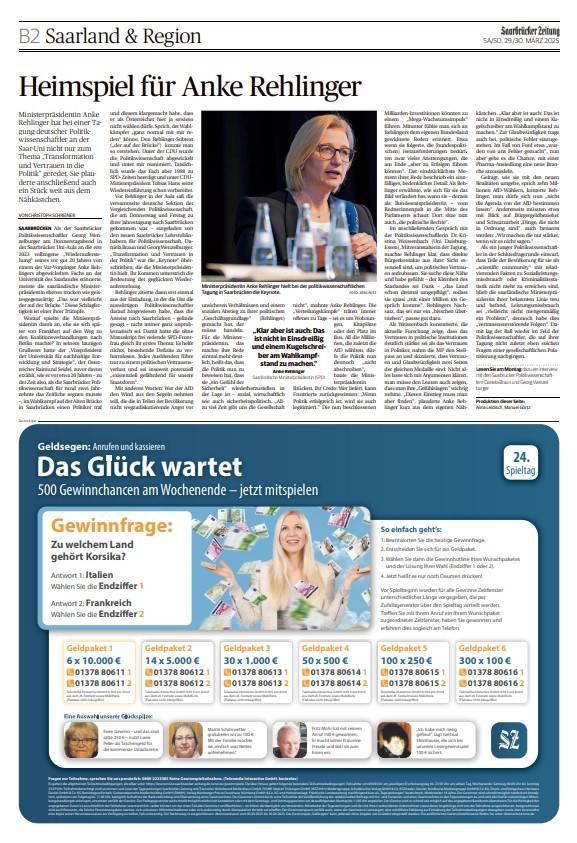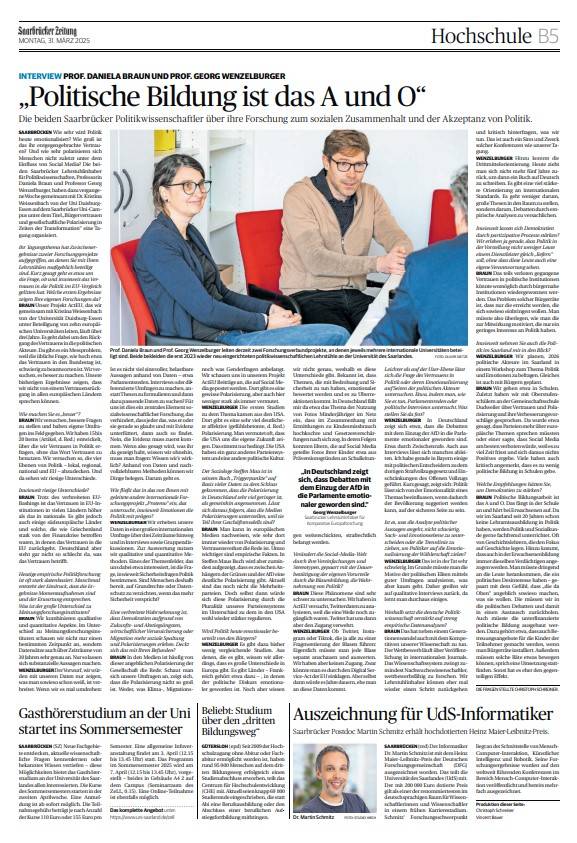How do we PARTICIPATE in politics? | TEPSA Animated Explainer
Voting, participating in political parties or demonstrations, signing petitions. These are just a few examples of the different ways in which we, citizens, can participate in politics. But how do we decide which types of participation to engage in? This TEPSA Animated Explainer, created in collaboration with the ActEU project, explores the triggers, motivations and emotions influencing citizens’ political participation.
"Multi-level democracy and political trust in Europe: The role of the subnational level"
The newest article at the ActEU blog series by Felix-Christopher von Nostitz has been published.
Multilevel governance is a key concept used to describe the functioning of the European Union. However, how democracy is structured in this multi-level setting is less explored, leading to a recent increase in the interest of multi-level democracy in Europe (Giegerich 2025; Sellers et al. 2020). Given its quasi-federal non-state polity of still sovereign member states, democratic institutions are implemented and organised in very different ways at the local, regional, national and European level across Europe.
See the full article here.
"Economic deprivation reduces political trust"
The new ActEU blog series on “Der (europäische) Föderalist” kicks off with the article “Economic deprivation reduces political trust” by Henrik Serup Christensen and Janette Huttunen.
Political trust is a fundamental precondition for the stability and legitimacy of the political system. For our societies to function smoothly, we need to hold at least some level of trust in the actors and institutions that make authoritative decisions on our behalf. We do not have to agree with everything they do, but a general belief that the system works and the common good is nonetheless favourable. For this reason, the study of political trust has been a central theme within political science.
Find the article here.
Thessaloniki Youth Democracy Lab
The Thessaloniki ActEU Youth Democracy Lab, organized by the Aristotle University of Thessaloniki, as consortium member, took place on April 8th, 2025.
Seventeen admitted applicants, mostly university students and young professionals, had the opportunity to learn about issues related to political trust, political participation, and political representation and offer their unique perspectives and recommendations for EU, national, and local institutions. Prof. Eftichia Teperolgou and Alexandros Christos Gkotinakos hosted the session and moderated the discussion that lasted a bit over three hours.
Attendees’ input was articulated in anonymized policy proposals and will be leveraged by ActEU in an upcoming report, together with recommendations from other Youth Democracy Labs by ActEU affiliated institutions across Europe, to tie into our project’s multi-method recommendation and policy toolkit development process. Below are pictures captured during the event.
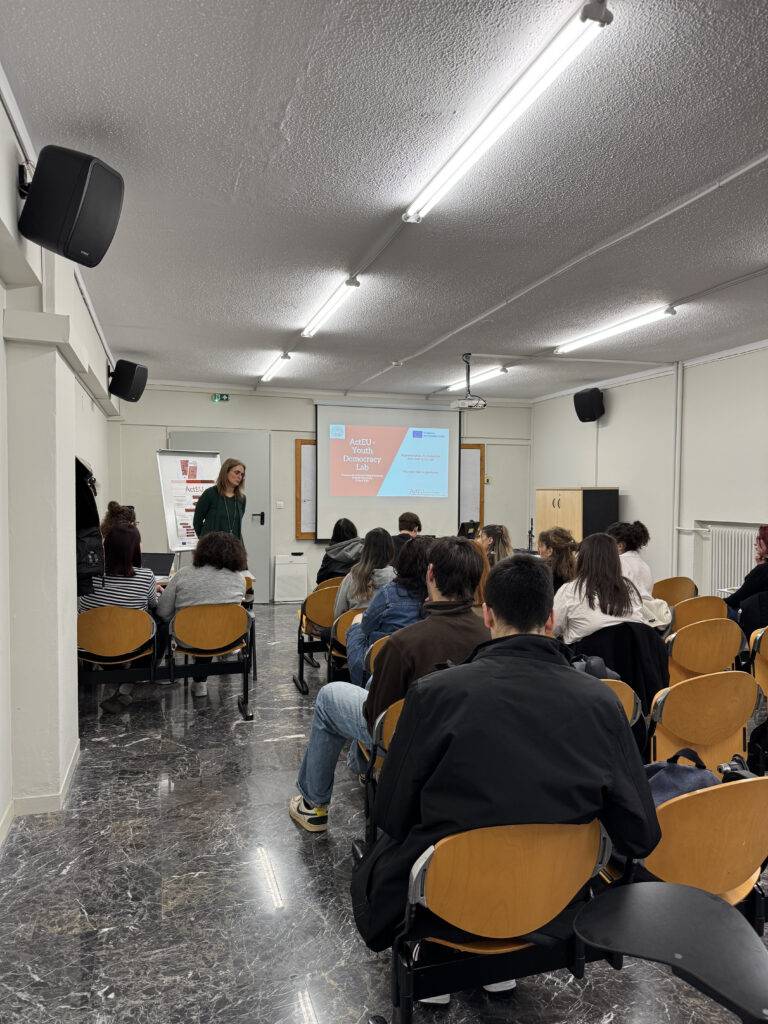
ActEU Video Contest “Through my eyes: Stories of democracy”
What does democracy look like to you? Is it electing your representatives and trusting them to make decisions that benefit the general interests? Is it feeling part of a society and of the decisions that affect you? Or is it about fighting for your struggles: for change, for being heard, having your voice matter?
In a time of political division, polarised debates and declining trust, democracy can feel distant, though it remains deeply personal. Because behind every headline, statistic or political statement, there are real human stories. With this video contest TEPSA invites you to share your perspectives and have your voice amplified across Europe.
Read more here.
Deadline: 9 November 2025
What makes a government LEGITIMATE?
What is political legitimacy? And why does it matter? What makes a democratic government legitimate? What happens when people feel a government is not legitimate? And how does legitimacy influence sense of belonging in a democracy? In this TEPSA Explainer in collaboration with the ActEU project, Daniela Braun, ActEU’s Scientific Lead and Professor at Saarland University explains how political legitimacy works and what happens when citizens feel that their government does not represent them.
Last Youth Democracy Lab Held in Warsaw
On May 27, 2025, SWPS University in Warsaw organized the last local Youth Democracy Lab (YDL) as part of the ActEU project. The workshop brought together 25 young students from fields such as political science, psychology, sociology, and cultural studies to discuss the future of European democracy. Held in an interactive, small group setting, the workshop focused on three main topics: participation, representation, and trust. The aim was to co-create specific policy and educational recommendations based on the perspectives and experiences of young citizens. The meeting was led by Wit Hubert and Mikołaj Cześnik, members of the ActEU consortium.
During the session, students proposed a number of solutions aimed at improving youth engagement in democratic life. These included greater transparency in decision-making, the promotion of youth citizens‘ assemblies, and the development of digital platforms enabling young people to submit policy ideas and interact with politicians and experts. In the area of representation, the group called for strengthening the role of independent experts, popularizing candidate debates, and new mechanisms for holding politicians accountable. There was also an interesting idea that an “election compass” (an online tool that helps voters compare their political views with the positions of political parties) should be mandatory for registering election committees. Educational recommendations included changes to civic education curricula, the introduction of simulation games, and the promotion of open dialogue in schools.
Despite time constraints and challenges related to group size, participants made valuable contributions and demonstrated a strong commitment to shaping a more participatory and inclusive democratic future.
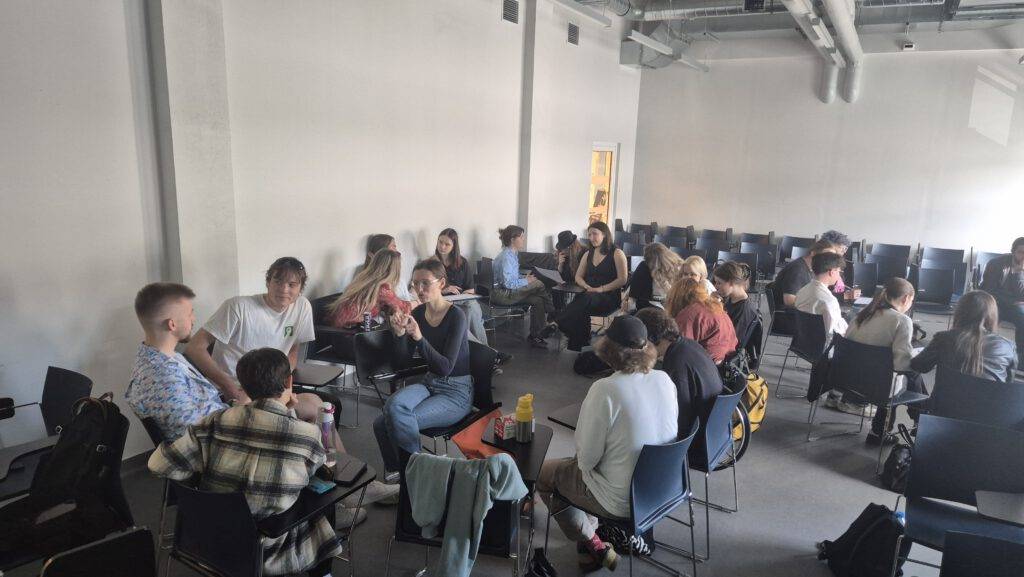
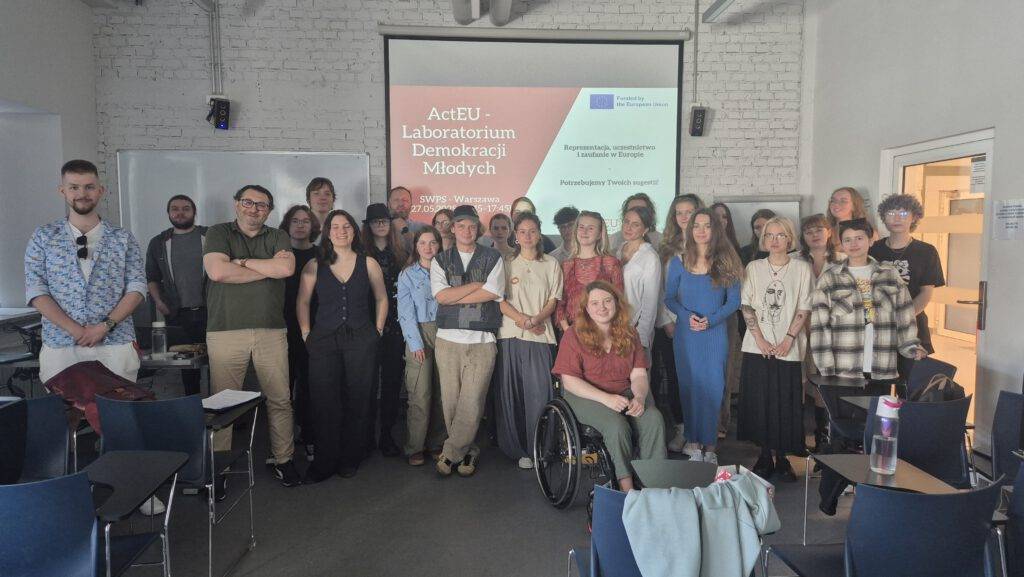
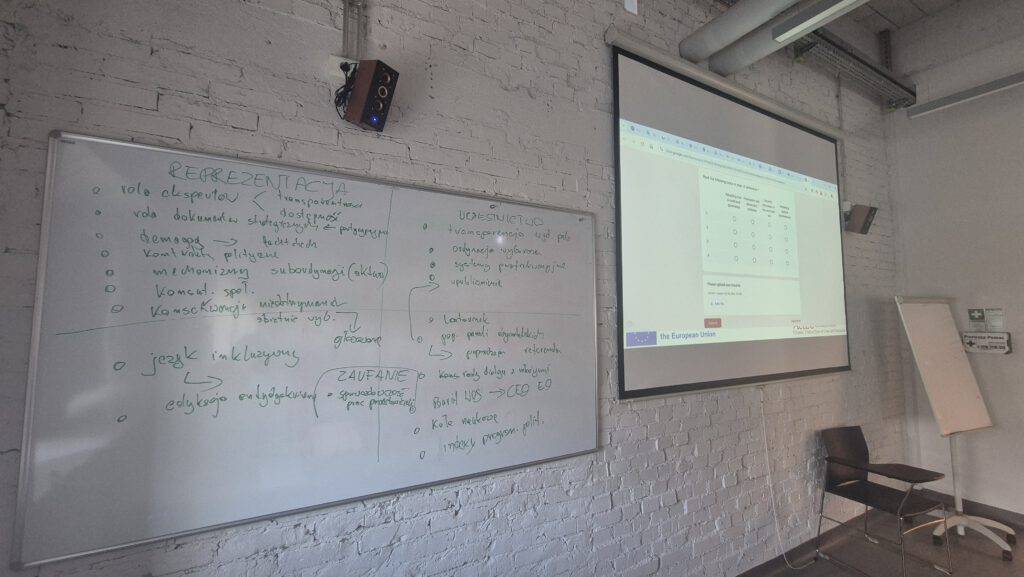
The last Czech Youth Democracy Lab in Pilsen
On 29 April 2025, the third Youth Democracy Lab workshop in the Czech Republic was held at the University of West Bohemia in Pilsen (the previous two took place in Prague). The workshop was led by Zdeněk Sychra and Petr Kratochvíl, members of the Czech ActEU team, and attended by final-year undergraduate students of International Relations as part of the course Contemporary Issues of the European Union. The aim of the meeting was to stimulate a deeper discussion on the relationship between political representation, participation, and trust, and to reflect on the current state of European politics through concrete recommendations for policy-makers and political education.
During the event, it became clear that the participating students had experience with both active and passive forms of political engagement. At the same time, they expressed a degree of scepticism regarding the effectiveness of such involvement and were highly critical of the performance of political representatives. This reflection clearly resonates with the current crisis of legitimacy in European democracies and was evident in the formulation of their recommendations.
According to the students, public policy should become more open to the public. Political representatives should communicate better and more regularly, be transparent, and willing to take responsibility even for unpopular decisions. It is essential to support youth participation in politics and to tailor communication to different segments of the population. The students emphasized the importance of listening to civic initiatives and the need for EU-level cooperation in addressing transnational challenges. In the field of education, they called for stronger development of civic, political, and economic awareness. A key priority is to enhance critical thinking, especially in relation to media literacy, the role of modern technologies, and the ability to adapt to a rapidly changing digital environment. Schools should prepare students for risks such as disinformation and populism, and encourage their active engagement in public life. In the Czech context, the students also highlighted the need to strengthen awareness of how the EU functions and to challenge some of the prevailing myths.
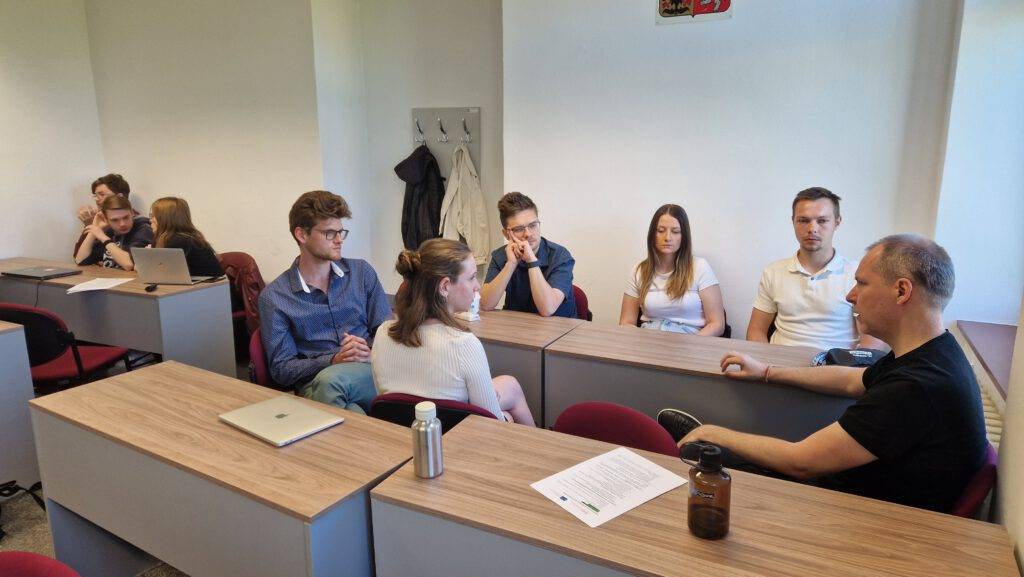
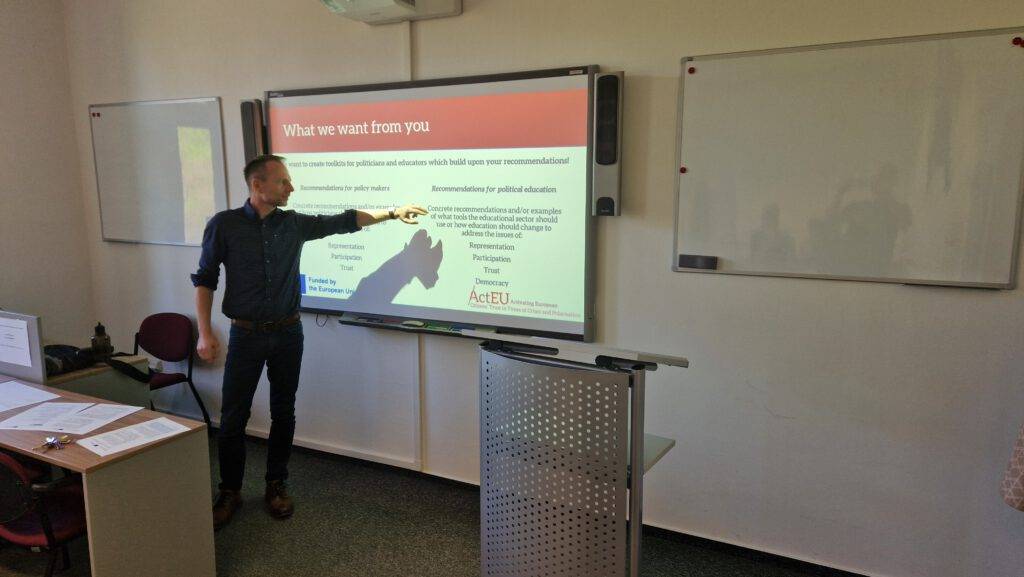
Infographic: Report on changing patterns of citizens’ political participation
Following the publication of ActEU’s “Report on changing patterns of citizens’ political participation“, the Trans European Policy Studies Association (TEPSA) produced an infographic exploring various forms of non-electoral political engagement.
The report, authored by Carles Pamies, Laura Morales, Chiao Li, Alexandros Christos Gkotinakos, Eftichia Teperoglou, Wit Hubert & Mikołaj Cześnik, provides an overview of the ways in which people participate in politics in Europe beyond elections, and looks at the connection between forms of political participation and levels of political trust.
What are the trends in political participation in Europe? Do people favour petition-signing over boycotting or demonstrating? And are there significant national variations? This infographic responds to these questions by summing up the report’s key arguments.
Is the populist far-right a transnational political force?
Populist far-right parties are rising across Europe, as confirmed in the recent European Parliament elections. But do these parties agree with one another? And can they really be considered a transnational political force?
This TEPSA Animated Explainer, created in collaboration with the ActEU project, attempts to respond to these questions. The video is based on the findings of the ActEU publication, „Report on the populist far-right, representation and their role in view of the new transnational cleavage”, authored by Petr Kratochvil (IIR), Katarzyna Kochlöffel (IIR), Jan Kovář (IIR), Laura Morales (CSIC), Pelin Musil (IIR), Luis Ramiro (UNED), Zdeněk Sychra (IIR).
"Shaping Europe – in a Hands-On Way!" Workshop on Europe Day at the Robert Schuman Vocational College in Essen in cooperation with the ActEU Team from Duisburg
On May 9, 2025 – Europe Day – around 60 students from the Robert Schuman Vocational College in Essen took part in an interactive workshop entitled „The EU in Your Everyday Life – Shaping Europe’s Future on #EuropeDay“, organized in cooperation with the ActEU Team from UDE. The goal of the workshop was to make the European Union’s significance tangible for young people while giving them space to develop their own visions for Europe’s future.
Following a joint introduction with a video and a warm-up session exploring the question “Where do we encounter the EU in everyday life?”, participants received a brief input on the historical importance of the Schuman Declaration – and how it relates to the EU’s current challenges. Students then became actively involved in two creative workshop stations: either as EU influencers developing a fictional social media campaign or by drafting their own “Schuman Declaration 2.0”. The ideas from the students addressed both polity level solutions and the polarizing policy fields of gender and the environment.
The group work and final discussion were supported by two experienced experts from the field: Martin Mödder (EuropeDirect speaker, Edu:Impact) and Carolin Mues (Young European Federalists, NRW). Their insights and feedback from everyday European practice provided the students with valuable perspectives on working with and for Europe.
To close the workshop, participants quite literally sent their hopes for the future into the sky: a symbolic balloon release organized by the school for Europe Day rounded off the workshop – filled with ideas on how Europe could function even better in the future.
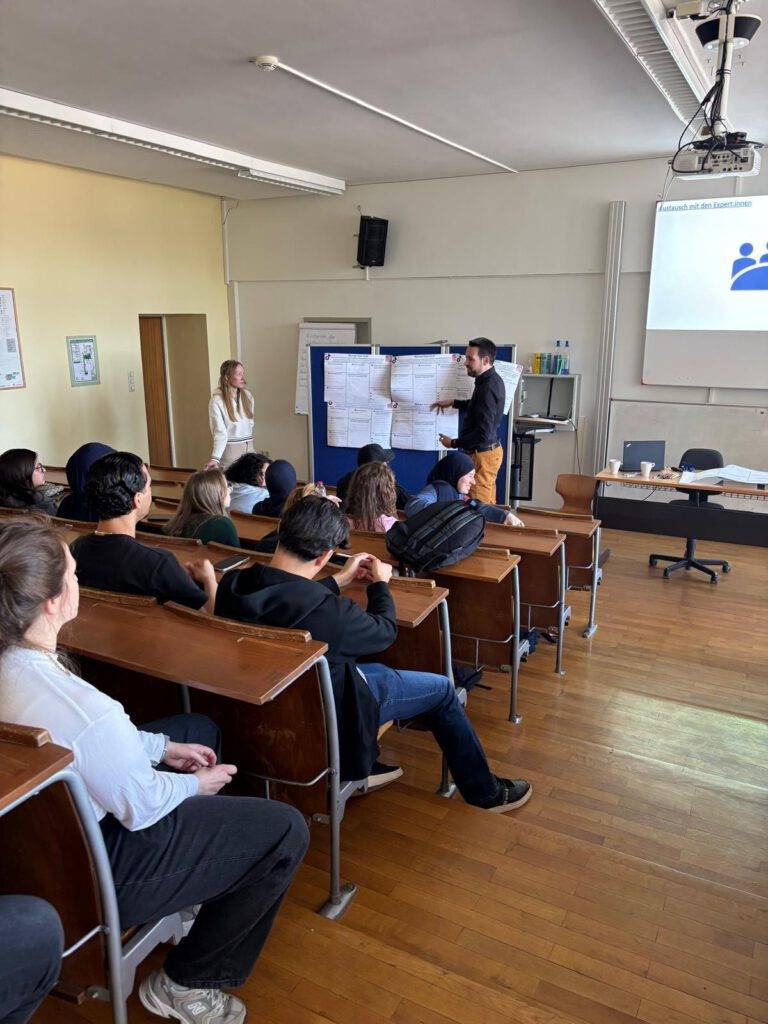

NEW PUBLICATION! "Back to the future" by Roula Nezi & Zoe Lefkofridi
In the context of the ActEU project Roula Nezi and Zoe Lefkofridi provided a systematic analysis of the June 2023 election, they used Bartolini’s (2002) dimensions of politico-electoral competition: availability of voters, contestability, decidability, and incumbent vulnerability. The analysis highlights the role of the legacy of the economic crisis and electoral reforms, which affected the translation of votes into seats and the eligibility of voters and parties, in producing a dominant party and a fragmented opposition.
Find the article here: https://www.tandfonline.com/doi/full/10.1080/13608746.2025.2470307#d1e752
Belgian Youth Democracy Lab
On 9 April 2025, TEPSA and the Institute for European Studies of the Université Libre de Bruxelles (IEE-ULB) co-organised the ActEU‘s Belgian Youth Democracy Lab. The event was embedded in the university course Questions de science politique interne, part of the second-year Bachelor’s programme in Political Science at the ULB.
The workshop, held in French, brought together 18 students and was moderated by Alvaro Oleart (FNRS postdoctoral researcher, IEE-ULB). It aimed to engage young people in the ActEU project and, more specifically, in its recommendation-building process. Participants were invited to produce concrete proposals in response to two guiding questions:
- What should politicians do to strengthen European democracy?
- Which topics should schools and other educational institutions prioritise to prepare young people for life in a democracy?
Find more information here.
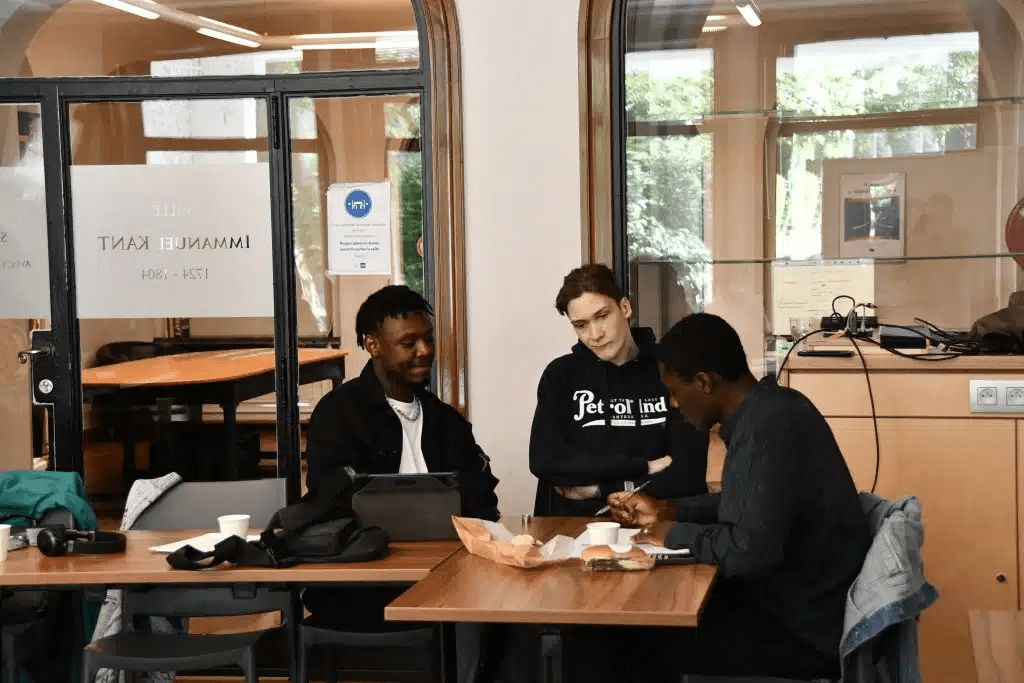
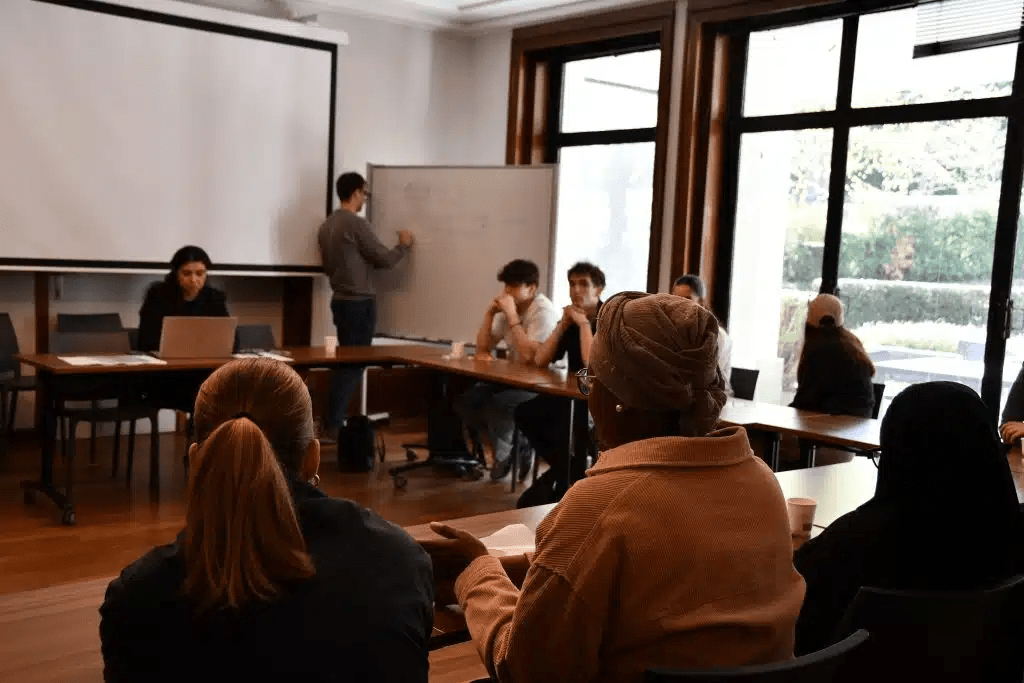
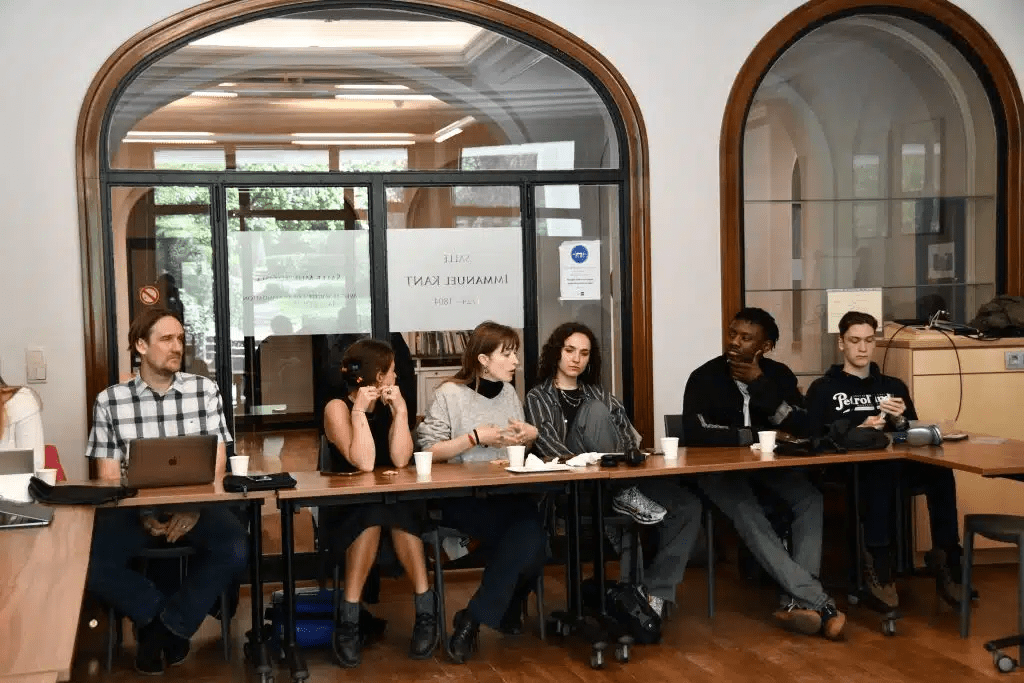
How are people getting involved in politics today? | Alexander Hoppe
What are traditional ways of participating in politics? How are new forms of participation changing politics? Why do some people feel their vote doesn’t make a difference? What impact can individual action have on the system?
In this TEPSA Explainer in collaboration with the ActEU project, Alexander Hoppe from the University of Duisburg-Essen explains all the different ways you can get involved in politics today – it’s not just about voting every few years
Conference of the Section for Comparative Politics of the German Association for Political Science (DVPW)
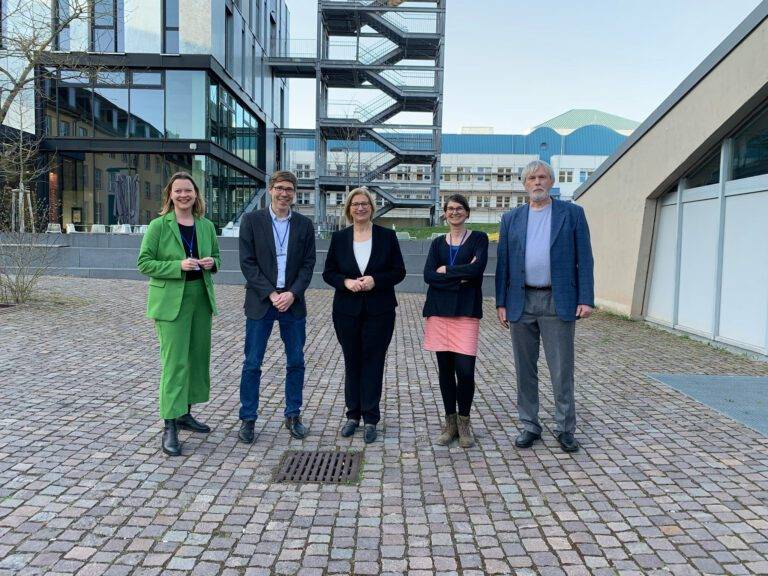
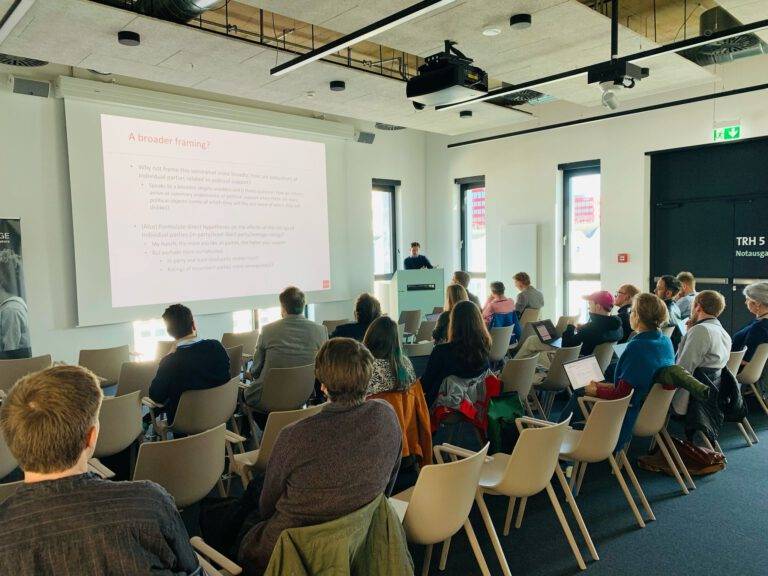
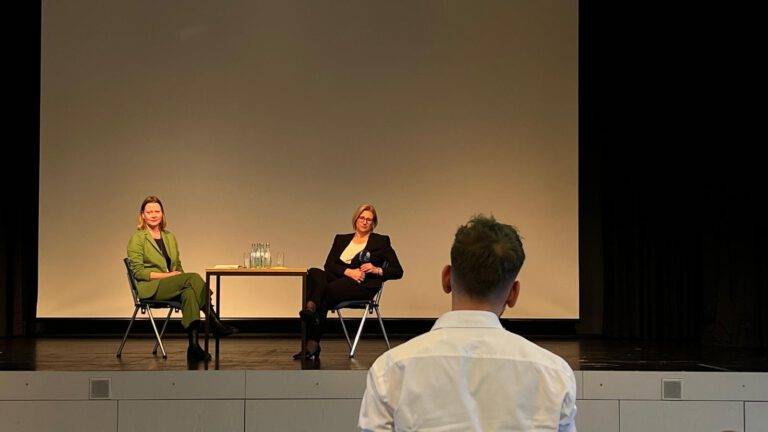
On March 27th and 28th, 2025, the annual conference of the Section for Comparative Politics of the German Association for Political Science (DVPW) took place at Saarland University – organized in cooperation between Saarland University (Prof. Dr. Daniela Braun, Prof. Dr. Georg Wenzelburger) and the NRW School of Governance at the University of Duisburg-Essen (Dr. Kristina Weissenbach).
Thematically aligned with the ActEU project, the conference was titled „Citizen’s Trust and Societal Polarization in Times of Transformation. Comparative Perspectives from Different World Regions,“ and it brought together scholars from both Germany and abroad to discuss current challenges to democracies worldwide. In more than 20 panels, topics such as political trust, populist attitudes, gender conflicts, migration, environmental policy, and new methodological approaches in Comparative Politics were addressed.
In the panel „Trust(s), Political Attitudes, and Participation,“ Louisa Parks (University of Trento), Felix-Christopher von Nostitz (ESPOL, Institut Catholique de Lille), Max-Valentin Robert (ESPOL, Institut Catholique de Lille), and Kristina Weissenbach (University of Duisburg-Essen) contributed insights from the ActEU project, presenting their paper on the triggers, emotions, and motivations behind changing participation patterns.
A special highlight of the program was the practical discussion with the Minister-President of Saarland, Anke Rehlinger, moderated by Dr. Kristina Weissenbach (NRW School of Governance). In her keynote and subsequent conversation, Rehlinger spoke about citizens‘ desires for change, the role of political communication in times of polarization, and her experiences from workshop discussions in the state. Her key takeaway: „Traveling across the country and talking to the people“ – direct exchange is the most important key to building trust.
Find here the DVPW-program.
How are GENDER EQUALITY and DEMOCRACY connected?
What does gender equality mean in a democratic society? How can democratic representation strengthen gender equality? Why are democracy and gender equality facing backlash? What can be done to support democracy and gender equality?
In this TEPSA Explainer in collaboration with the ActEU project, Matilde Ceron, postdoctoral researcher at the University of Salzburg, explores the connection between gender equality and democracy and the challenges they are facing in today’s societies.
ACTEU DOCTORAL SCHOOL - Report
“Democratic Frontiers: Charting Pathways for Trust and Participation in European Governance"
In the framework of ActEU the Trans European Policy Studies Association (TEPSA) organised a four-day Doctoral School in Brussels for 16 PhD candidates and young researchers. The participants were selected via an open call for applications, which attracted 50 high-calibre applications, and from the student bodies of university partners within the consortium.
The aim of the ActEU Doctoral School was to deepen participants’ understanding of the decline in institutional trust and political participation within the polarised multilevel system of governance of the European Union (EU).
The programme included lectures, methodological presentations, and interactive discussions with academics, civil society representatives, and EU policy-makers. Additionally, a workshop on storytelling and effective communication, led by a qualified trainer, equipped the participants with the key skills to effectively disseminate their research.
Find the Report here: ActEU Doctoral School Report.
How do we DECIDE who to VOTE FOR?
Has voting behaviour changed in recent years? What factors affect how people vote today? How do major events or crises influence voting decisions? What impact do political campaigns have on voters?
In this TEPSA Explainer in collaboration with the ActEU Project, Max-Valentin Robert, Postdoctoral Researcher at the Université Catholique de Lille, explains the factors influencing Europeans’ voting decisions and the impact of (online) political campaigns.
ActEU Doctoral School: Democratic Frontiers
Political trust and legitimacy are foundational to the functioning of representative democracies, and especially during periods of significant change and turmoil. Since the founding of the European Union (EU), European democracies have undergone fundamental transformations, compounded by multiple crises. These coincide with societal polarisation, exemplified by political conflicts over migration, climate change, or gender, to cite a few. The need to restore legitimacy and trust is heightened by existential challenges to the EU’s democratic model, such as democratic backsliding in some Member States and external threats, underscoring the importance of resilience in the face of military aggression, disinformation and hybrid warfare.
To delve into these vital issues, the Trans European Policy Studies Association (TEPSA) organised the ActEU Doctoral School, “Democratic Frontiers: Charting Pathways for Trust and Participation in European Governance”, which will take place in Brussels from 10 to 13 February 2025.
For more information have a look on the ActEU PhD Workshop final agenda or visit the website of TEPSA.
Contribution to the WDR 5 Podcast „Wissenschaft und mehr“ (Science and more)
On 7 November 2024 Prof. Dr. Daniela Braun (Scientific lead of ActEU and co-lead of WP1) took part in the episode „Wiener Narrenturm und Psychiatrie – 1,5-Grad-Schwelle – Glaube“ of the WDR 5 podcast „Wissenschaft und mehr“. Among other issues the episode was related to the matter of trust in political institutions and the political system. Listen to the podcast here: https://www1.wdr.de/mediathek/audio/wdr5/quarks/index.html
Civil Society Network Workshop
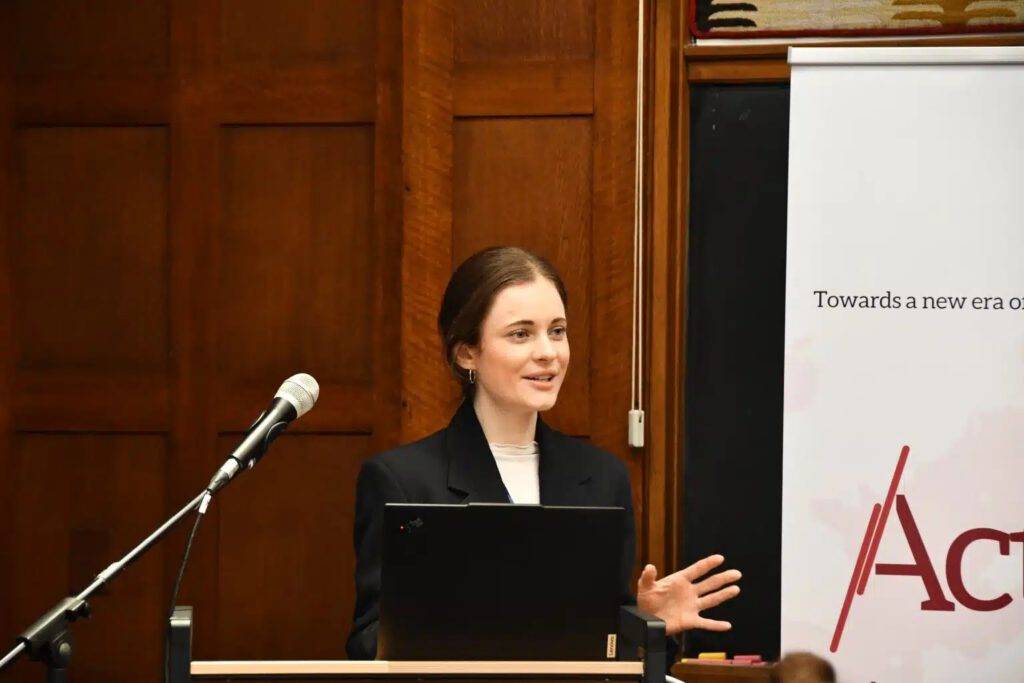
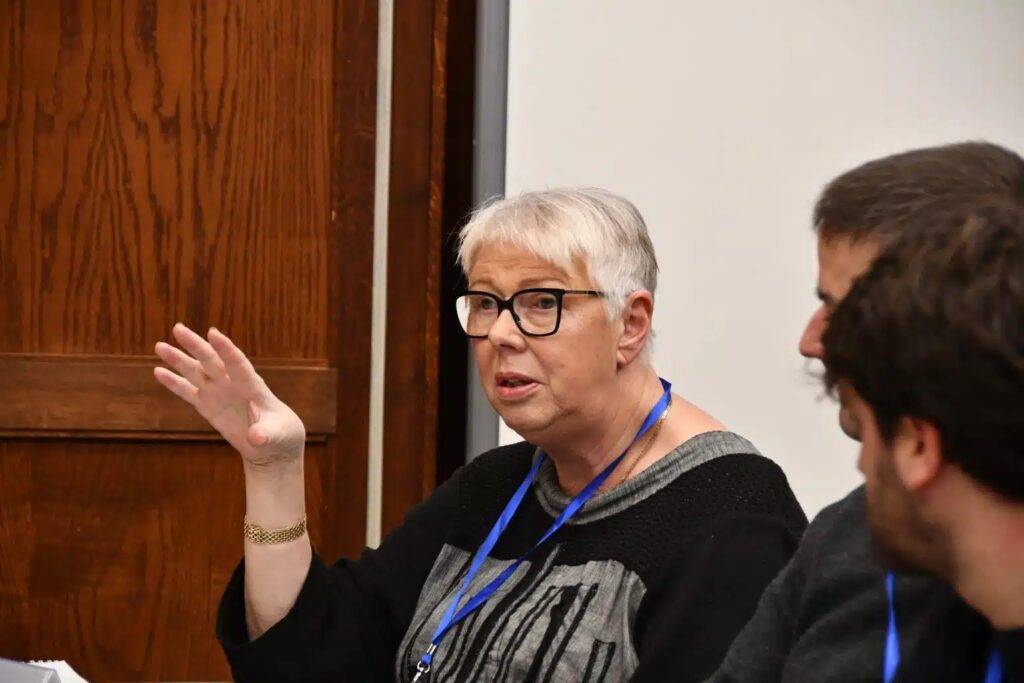
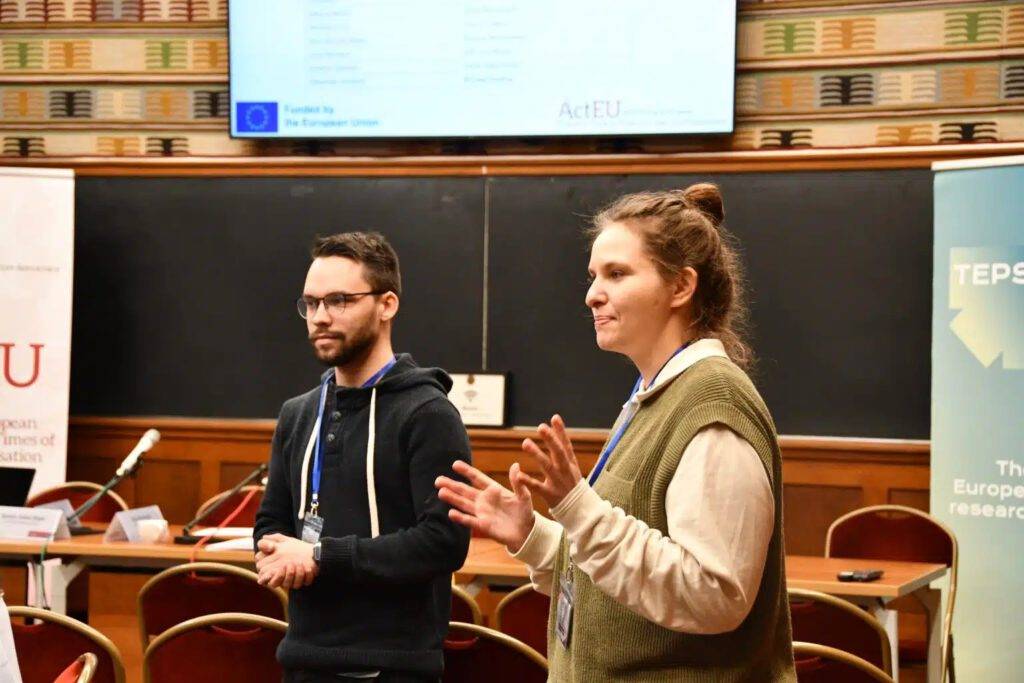
On 13 December 2024, the Trans European Policy Studies Association (TEPSA) organised the ActEU Civil Society Network Workshop. The event followed the project’s Mid-Term Conference, “Strengthening democracy: Building trust and tackling polarisation in Europe”, which took place on 12 December in Brussels.
This workshop aimed to facilitate a constructive dialogue between ActEU researchers and members of the project’s civil society network (CSN). Acting as the key advisory body to the ActEU scientific team, the CSN is a vibrant group of dedicated individuals uniquely equipped to make a significant impact in areas such as multi-level governance, climate, citizens and youth engagement, gender equality, and migration.
See more information on the website of TEPSA.
Youth Democracy Lab at the Faculty of Social Sciences, University of Ljubljana
On 3 December 2024, a Youth Democracy Lab was held at the Faculty of Social Sciences at the University of Ljubljana as part of the ActEU project. The event engaged master students in exploring the concepts of representation, participation, and trust within the context of European democracy. The interactive workshop was led by the project team from Duisburg. So far, corresponding formats have already taken place in Duisburg, Essen, Saarbrücken (Germany), and Trento (Italy). In the coming months, the consortium partners will implement further Democracy Labs all throughout Europe.
Engaging Discussions on Political Representation & Participation
The lab opened with discussions on the current state of political trust, based on anecdotal and empirical evidence. Students reflected on what the concepts of representation and participation mean to them in their everyday lives, and which challenges they currently perceive as particularly significant. The main points of reference were some first insights from our focus groups and findings from our survey, which are key elements of ActEU. It was explained to the students that their ideas, suggestions, and perspectives are the central source of knowledge and inspiration for all the discussions, following the general concept of the “Democracy Lab” format.
Recommendations
The students’ recommendations emphasized the need for a comprehensive implementation of political education. This includes general education on political processes to improve political culture, specialized courses and workshops with experts to make democracy tangible, and a mandatory integration of these courses into all levels of education from elementary school to university. They also recommended introducing courses on minority rights, gender, LGBTQ, as well as race and culture, to cultivate understanding and equity. The students also called for greater transparency and expertise in political offices, emphasizing community engagement and visibility. The students proposed improvements to political processes, including mandatory consultations with youth organizations, enhanced visibility of EU programs, better oversight of EU funds, and citizen referendums.
Insights regarding the further process
These recommendations made by young people all across Europe, collected in the Youth Democracy Labs, will be used to develop toolkits—both for policymakers and for the educational sector. The toolkits will be created in cooperation with the projects Civil Society Network. We would like to thank the participating students for their commitment and valuable contributions!
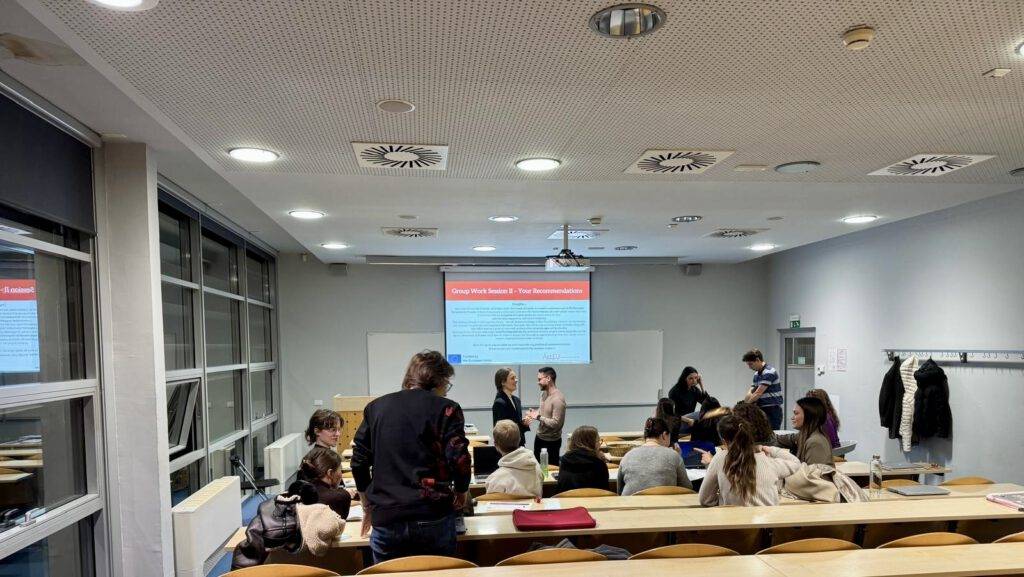
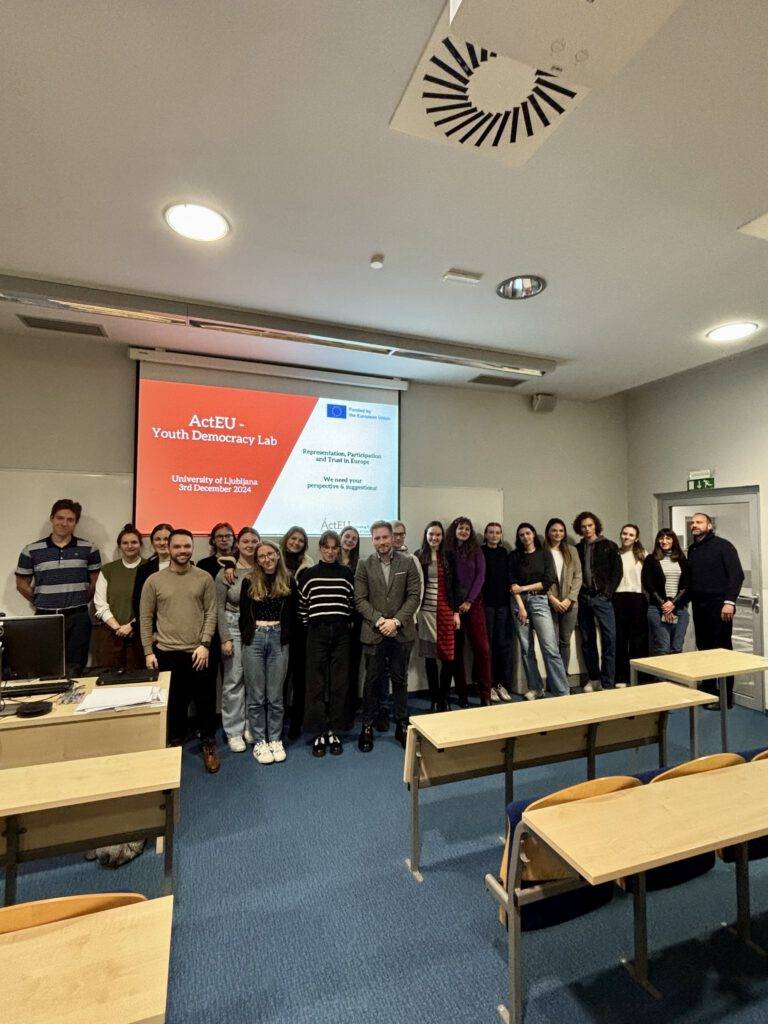
Trust in the EU
Some countries experienced a decline of trust in the EU following the financial and debt crises, but most of them have seen an upward trend in recent years. Can trust in the EU be recovered❓How does political trust fluctuate❓
#ActEU’s report on the general dynamics of trust investigates these and other questions. Scroll through this infographic to read the authors’ key points on political trust in the EU.






In 1/3 of 🇪🇺 countries and the 🇬🇧, trust in national governments is improving. What are the factors influencing political trust❓How does trust in national governments & parliaments work❓
This second infographic on #ActEU’s “Report on the general dynamics of trust based on secondary data analysis” looks at political trust at the national level and gives recommendations on how to rebuild it.





See more on Instagram.
“Securing Europe’s Future” | Polish Pre-Presidency Conference
The Polish PPC took place on 21-22 November in Warsaw, and hosted policy-makers to meet with key stakeholders and the wider public. The conference featured high level discussions between research from the TEPSA Network, members of the public including students and civil society representatives, and key figures in the Polish government.
This Pre-Presidency Conference was co-organised by TEPSA and the Institute of European Studies, Jagiellonian University, together with the Future Democracy Lab, Excellence Initiative of the Jagiellonian University, and Visegrad Insight. Additional support to specific parts of the agenda were provided by the Horizon Europe project “Activating European Citizens’ Trust in Times of Crises and Polarization (ActEU)”, as well as by the University of Warsaw and the Adam Mickiewicz Institute. The presentation of the project took an important part of the agenda.
Find more information here.
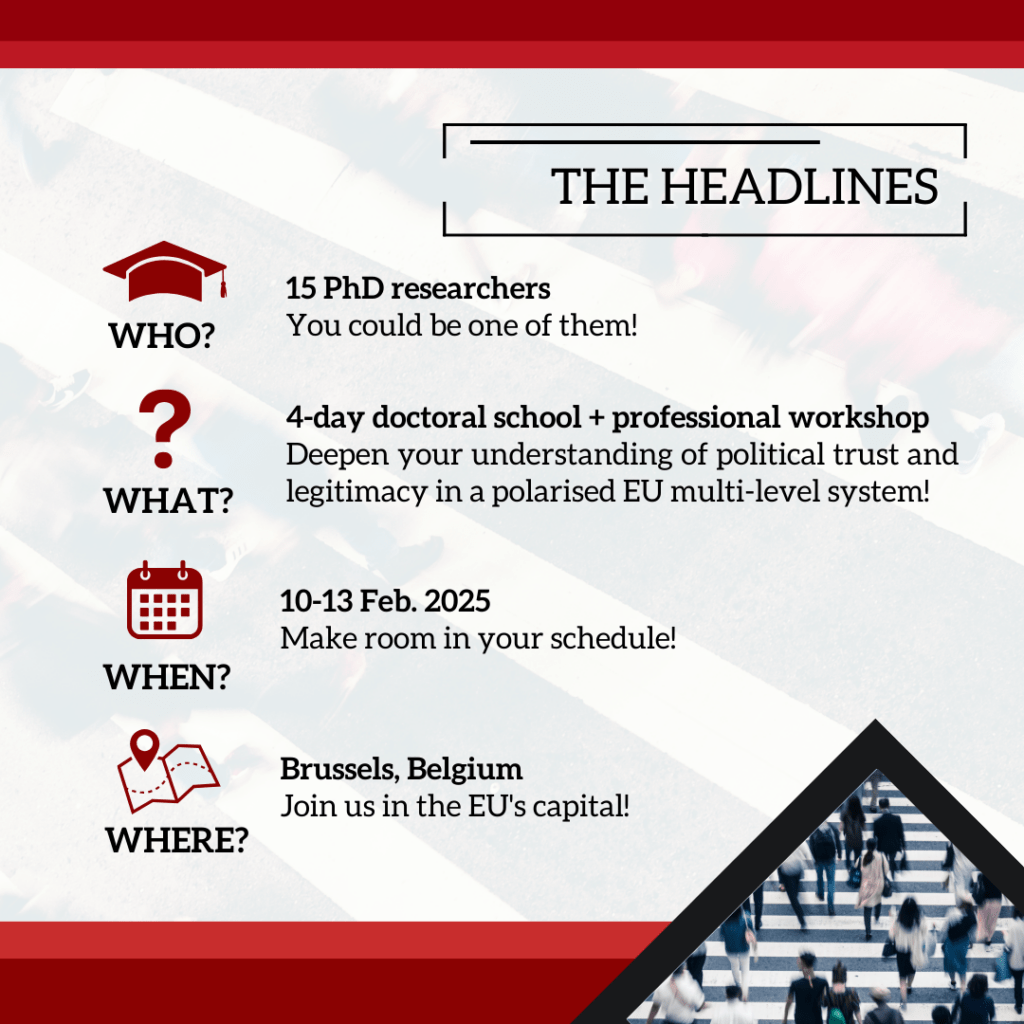
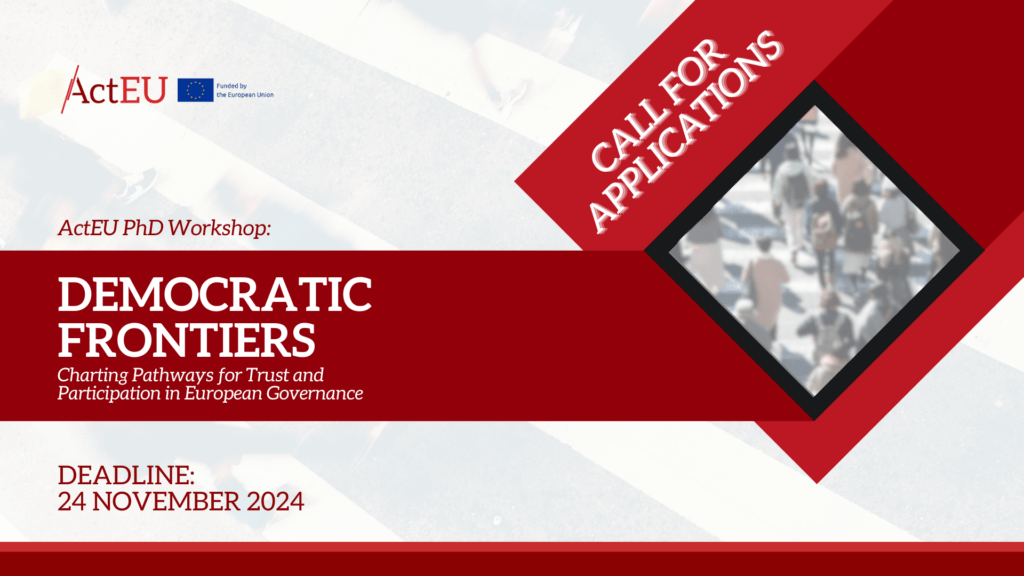
Deadline 24 November
The ActEU Doctoral School aims to deepen PhD researchers’ understanding of political trust and legitimacy within the polarised EU multi-level system of governance. PhD researchers will delve into a comprehensive conceptual framework, exploring critical questions related to trust, legitimacy, and democratic resilience in Europe. The programme seeks to foster connections between PhD researchers and practitioners, including EU policy-makers and civil society representatives, across various fields relevant to ActEU (i.e. EU democracy and legitimacy, local and regional democratic issues, polarised policy fields, political participation, and representation). Through a multi-method approach, participants will gain insights into the “ActEU triangle” – the interrelationship between political attitudes, political behaviour and (feelings of) political representation -, enhancing their analytical skills and research methodologies. The Doctoral School will also encourage collaborative efforts, enabling young researchers to present their research in peer-review exercises and opening opportunities to co-author publications, with the goal of continuing these academic partnerships beyond the seminar.
Find more information here.
Presentation of the paper “Is representative democracy in Europe under pressure? Investigating the attitudinal and behavioural facets of citizens' political disaffection”
On the 29th Congress of the German Association for Political Science, which will take place at the Georg-August University Göttingen and is dedicated to the topic “Politics in the polycrisis”, the teams of the University of Saarland and University of Duisburg-Essen will present the paper “Is representative democracy in Europe under pressure? Investigating the attitudinal and behavioural facets of citizens‘ political disaffection” by Ruth Berkowitz, Daniela Braun, Alexander Hartland, Michael Kaeding, Ann-Kathrin Reinl and Kristina Weissenbach. The paper will represent the findings of the focus group data collected within the framework of ActEU.
For more information on the congress see here.
New publication!
„Political trust in Europe in the context of multilevel structures and polarisation: conceptual reflections“ by Michael Kaeding and Daniela Braun. Published in integration.
European democracy is undergoing profound change. The various crises of the past 15 years and the transformations associated with modernisation, globalisation, geopolitics and Europeanisation are threatening the trust of citizens in political actors and institutions and the legitimacy of the EU multi-level system. This goes hand in hand with the polarisation of European societies. In order to counter these developments, the problems of trust and legitimacy must be better researched. This is where the ActEU research project “Towards a new era of representative democracy. Activating European Citizens’ Trust in Times of Crises and Polarisation” comes in. This article provides an overview of the underlying conceptual considerations of the Horizon Europe project.
Call for Panels and Papers on The conference "Citizen’s trust and societal polarization in times of transformation. Comparative Perspectives from different world region"
The conference, organised by the Saarland University and the University Duisburg-Essen will take place on March 27th and March 28th 2025 at the Saarland University, Saarbrücken. The main objective of this conference is to examine from various perspectives one of the most pressing issues of representative democracies: Citizen’s (dis-)trust in “their” political system, in
institutions and politicians.
Across different world regions, citizens face times of rapid or long-term transformation related to migration and integration, climate change, technological change, gender inequalities, Europeanization or region-specific challenges, among other issues. These transformations cause uncertainty, frustration, the feeling of not being represented, insecurity or hate on the side of
many citizens while others embrace the challenges in an entrepreneurial way.
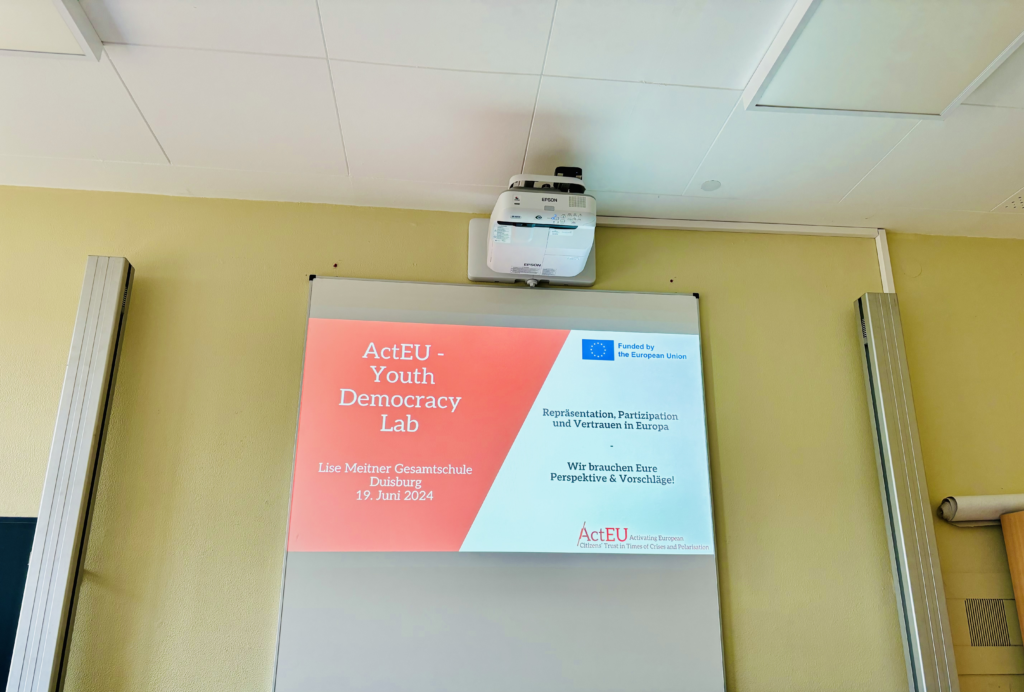
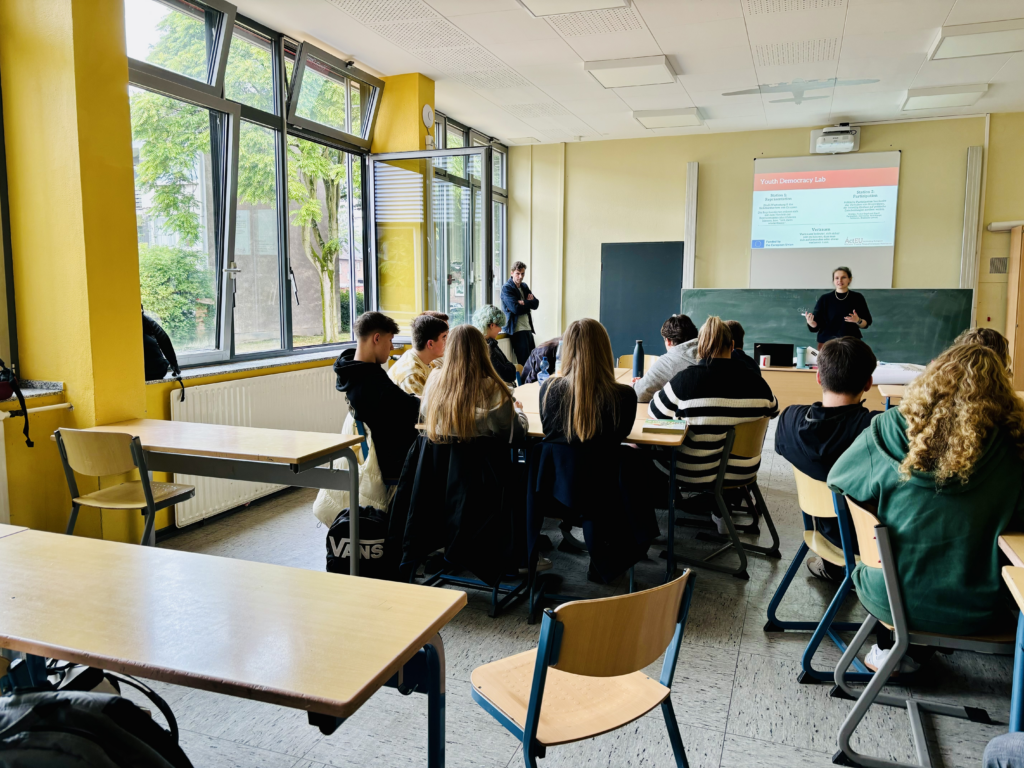
ActEU – First Youth Democracy Lab
On 19 June 2024, shortly before the summer holidays in North Rhine-Westphalia, a Youth Democracy Lab was held as part of the project „ActEU – Activating European Citizens‘ Trust in Times of Crisis and Polarisation“ in a senior year class at the Lise Meitner Gesamtschule in Duisburg. The lab focussed on current topics relating to representation, participation and trust in European democracy. The students were given the opportunity to actively participate in the research process and contribute their perspectives, suggestions and ideas for strengthening democracy. The Youth Democracy Lab was planned and organised by the project team in Duisburg.
Insights into the project and initial discussions
The Youth Democracy Lab began with a short mood chart of the students‘ opinions and an insight into the underlying concepts of the project and initial research results. They were then divided into two groups to discuss at the „Representation“ and „Participation“ stations. The aim was to exchange opinions on the research results, enrich them with personal experiences and add further relevant aspects.
Creative methods and in-depth discussions
The lecturers used a creative method that served as an introduction and stimulus for the discussions – the students described politicians and political institutions using their associations with an animal and its characteristics. This enabled a playful but in-depth discussion of key aspects of integrity, reliability and a sense of responsibility in a political context, as well as a discussion about the motives and backgrounds of the young generation to participate.
Concrete recommendations
After the discussions, the groups collected concrete recommendations on the key questions of what politicians should do to strengthen European democracy and which topics they consider important to ensure that schools prepare young people well for life in a democracy. These valuable recommendations were then received by the workshop leaders.
Next Steps
Based on this „pilot“ at the Lise Meitner Gesamtschule, similar workshops are now being held in all countries involved in the project. The recommendations and insights of the young generation from various European countries will then be analysed, summarised and used to develop toolkits for politicians and political education. We would like to thank the participating students for their dedicated cooperation and valuable contributions. We look forward to the further research process and the results of the upcoming workshops of other young people in Europe!
Activating the young generation: focus on a local initiative
The European activist Milad Tabesch wants to inspire young first-time voters to vote in the European elections: Through his ‚Ruhrpott für Europa‘ initiative, he organises workshops at schools in which he conveys the importance of Europe and European values. Ana Alba Schmidt, research associate for Prof. Dr. Michael Kaeding, coordinator of the ActEU project at the University of Duisburg-Essen, supports these approaches, emphasising that political education is particularly effective for young people. She highlights that young voters are easier to reach and stresses the importance of early electoral mobilisation in getting them used to voting. Alba Schmidt points out that despite their positive attitude towards democracy, young people often question the parties‘ ability to solve problems, which makes initiatives such as Tabesch’s all the more important.
Please find further information here.
Panel discussion ‘Environment under pressure’
On 7 May, Alex Hoppe (University of Duisburg-Essen) discussed the likely impact of the European elections on European environmental policy at the panel discussion ‘Environment under pressure’ organised by the Federal Agency for Civic Education in Bonn. Against the backdrop of an expected shift to the right, the participants (Sophie Pornschlegel, Europe Jaques Delors; Dr Manès Weisskircher, TU Dresden; moderator: Katharina Peetz) discussed how parties on the (far) right of the political spectrum are positioning themselves in terms of climate policy and what their chances of success are in the upcoming European elections.
Please find further information here.
European Elections Review
On tuesday the 11th of June, the Institute of Political Science of the University Duisburg-Essen is inviting to a European elections review. Mainly organized by Prof. Michael Kaeding and his team the event will include a discussion about the effects of the election on the future of Europe and the main characteristics of the 2024 election.

How can trust in politics regain? Interview with Prof. Dr. Daniela Braun:
The german „Ampelkoalition“ is talking its latest agreement on agricultural diesel to death. This behaviour of changing positions happened more often last year. Political scientist Daniela Braun explains in an interview what this means for trust in politics.
https://www.tagesschau.de/inland/innenpolitik/interview-braun-ampelkoalition-100.html

On November 15th, 2023, the Duisburg ActEU research team had the pleasure of presenting at the Institute of Political Science (IfP) internal research forum at the University of Duisburg-Essen (‚Mittagsforum‘). It provided an ideal platform to highlight the innovative exploratory sequential design that underpins the ActEU project, alongside sharing insights from the initial phase of data collection through focus groups.
The engaging session opened the floor to an enriching exchange of ideas, receiving very constructive feedback from a diverse audience of researchers and scholars. The Duisburg ActEU team was pleased for having the opportunity to share these insights into the project at the Mittagsforum and appreciated the encouraging response from the IfP community.
TEPSA TRAINING "Inside the European Parliament"
The Trans European Policy Studies Association (TEPSA) organized an online training seminar called „Inside the European Parliament“ as part of the ActEU project, coordinated by TEPSA Project Manager Lorenzo Mariani, aimed at enhancing European citizens‘ trust in times of crisis and polarization. The three-day seminar took place from October 11-13, 2023, and involved 19 Master’s and Bachelor’s students. The training provided in-depth knowledge about the functioning of the European Parliament, featuring presentations and discussions with professionals from the Parliament. The focus was on understanding the institution’s significance in the democratic process and its impact on European societies, with a particular emphasis on encouraging youth electoral participation in the 2024 elections.
The seminar included lectures on the history and workings of the European Parliament, as well as debates on its role in EU governance, relations with citizens, and electoral procedures. Practical exercises were also conducted, where participants developed strategies to engage young people in European politics through social media campaigns, speeches, electoral strategies, and identifying key priorities for the Parliament.
On the first day participants were introduced to the seminar by Lorenzo Mariani, who outlined the ActEU project and discussed the roles of the European Parliament. Manuel Müller then provided a comprehensive history and overview of the Parliament. Following this, a debate on the Parliament’s role in EU governance took place, moderated by Jaap Hoeksma and featuring experts Ilke Toygür and Alena Carna. The discussion covered the Parliament’s external relations and its interactions with other EU institutions and interest groups.
On day two, Ophélie Omnes moderated a debate on the key challenges facing the 2024 election, with Daniela Braun, Professor of Political Science at Saarland University and Louisa Parks, Associate Professor at the University of Trento. This was followed by a session with Ilaria Giustacchini, an Accredited Parliamentary Assistant, who provided insights into the day-to-day workings of the Parliament. The day ended with a group activity led by Lorenzo Mariani, where participants engaged in practical exercises related to youth engagement in European politics.
The final day featured autonomous group work to prepare presentations on the importance of youth voter turnout. An interactive discussion led by Michael Kaeding, Professor of European Integration and European Union Politics at the University of Duisburg-Essen, explored ways to encourage youth voter turnout, addressing trust in institutions and the impact of various challenges on election turnout. The seminar concluded with participants presenting their innovative ideas for engaging youth in European politics, resulting in fruitful debate and feedback. Certificates were awarded to participants at the end of the seminar.
Conference: Emotional Dynamics of (In)security and Politics
The conference seeks to explore the relationship between feelings of (in)security and emotional needs towards protection and political responses to those feelings and needs.
The Conference “Emotional Dynamics of (In)security and Politics” is hosted by the Chair of Political Science and Comparative European Research of Saarland University (site) and funded by the Department of International Relations of Saarland University. There are no conference fees involved.
The conference will take place at the Saarland University from June 11, 2024 until June 13. It will be organised by Dr. Beatriz Carbone and Prof. Dr. Georg Wenzelburger (both Chair of Comparative European Politics at Saarland University).
For further information and how you can submit paper proposal se:
https://www.uni-saarland.de/lehrstuhl/wenzelburger/forschung/emotional-dynamics.html
Citizen Science project ActEU enters focus group phase: Political participation and representation in Europe
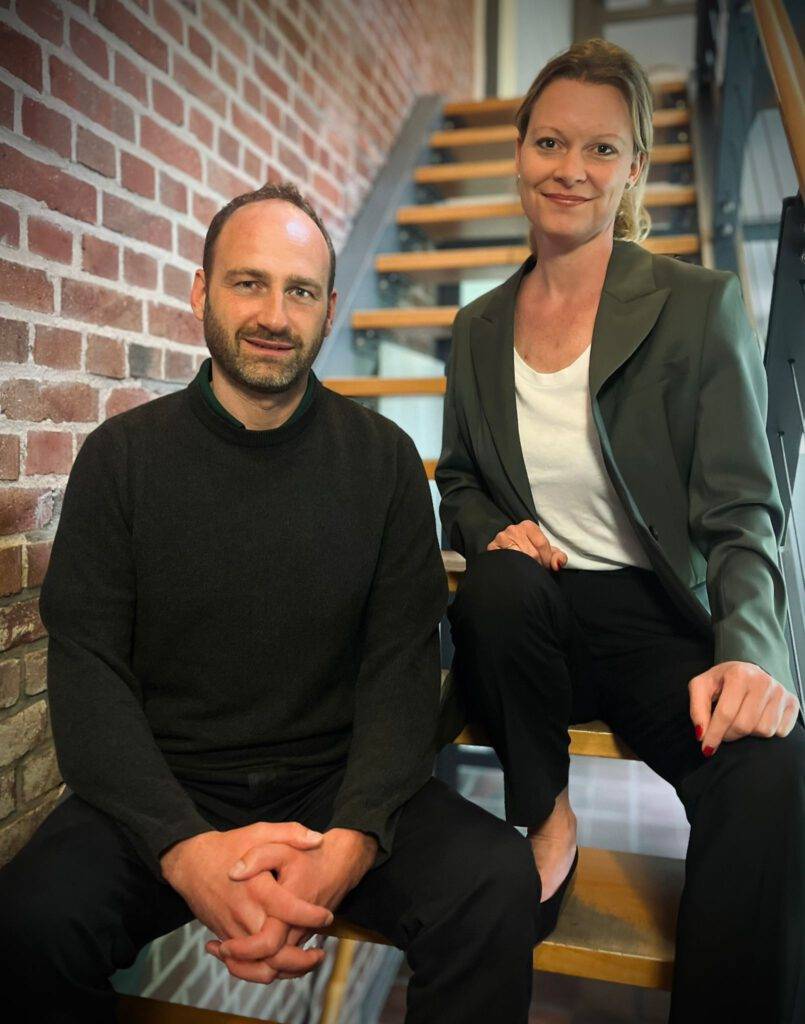
How do the citizens of Europe envision political participation and opportunities for involvement? Under what conditions do they feel represented? What role do conventional means of participation within institutions and processes of representative democracies in Europe, such as political parties or elections, play and what significance do unconventional and disruptive forms of participation, such as political consumerism or activism (#activism), have? Do the logic and routines of individual and collective political participation in the digital realm truly differ from those on the streets?
To address these questions, the Horizon Europe project ActEU, led by Michael Kaeding and Kristina Weissenbach (University of Duisburg-Essen), has now entered the first phase of exploratory and sequential data collection and analysis: From May to September 2023, focus groups will take place in Germany, France, Greece, and the Czech Republic. The aim is to comparatively broaden our understanding of different facets of the traditional „question of trust“ from survey research. The analysis results contribute, on one hand, to the conceptualization of the subsequent web scraping phase and the experimental survey. On the other hand, they provide the way for the transdisciplinary development of toolkits for actors from politics and civil society, as well as for teachers in secondary schools, and for the implementation of real-world laboratories involving youth, politicians, and cartoonists from various EU member states.
Under the scientific direction of Daniela Braun (Saarland University), ActEU (https://acteu.org/) used the newly generated data to examine the trust of citizens from 10 countries of the European Union in the institutions, actors and processes of the represent democracy and develop, based on this, target group-oriented and practically implementable measures to create, win back and stabilize trust.
Insights into the focus groups: In each country, four homogenous groups, focusing on the topic of political participation, were engaged in conversation, while also maintaining sociostructural heterogeneity. In order to enable gender-specific narratives about processes and emotional aspects of political participation, representation, and trust, a purely female group was assembled in each case. While conceptualizing the guideline, special emphasis was placed on the individual perception of political challenges such as migration, gender equality, or climate change. Additionally, discussions revolved around identifying the appropriate level within a political system to address these challenges and what qualities constitute a qualified politician capable of identifying and implementing solutions for individual and collective “problems”.
By using its exploratory design and the utilization of the „Chinese portrait“ or spontaneous associations, the initial qualitative data collection phase on individual, collective, and connective participation, as well as descriptive, substantive, and emotional representation within the context of digital transformation, now establishes the foundation for various analyses within the overall ActEU project. Qualitative and thematic content analyses, along with facial expression analyses of the video material, constitute the initial approach.
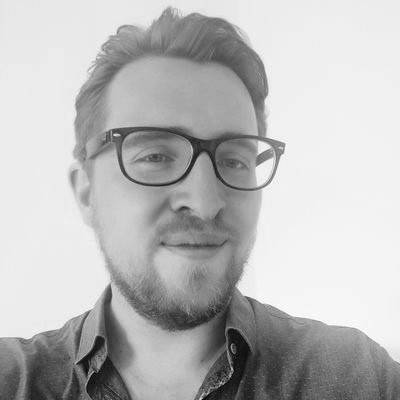
Max-Valentin Robert joins ActEU Team at ESPOL
We are very pleased to announce that Max-Valentin Robert joined us as a postdoctoral researcher at ESPOL on July 1, 2023. Max-Valentin Robert will work with the ActEU WP3 Team at ESPOL. Max-Valentin Robert completed his Ph.D. in political science in January 2021 at Sciences Po Grenoble (UMR Pacte, France) and before joining ESPOL he worked as a research fellow at the University of Nottingham in the Digital Society Project.
TEPSA Training: “Inside the European Parliament”





The seminar will be conducted online via Zoom from 11 to 13 October 2023. It will consist of daily sessions (from 14:00 to 18:00) which will include lectures from high-level experts on EU institutional affairs and democratic participation, interactive discussions with practitioners from the European Parliament, and hands-on group activities.
See the detailed process below.
For further information: https://www.tepsa.eu/call-for-applications-tepsa-training-inside-the-european-parliament-deadline-september-10/
Day One
14:00-15:00
Introduction and Overview
Lorenzo Mariani, Project Manager, TEPSA
Participants will be welcomed to the training and introduced to its content and functioning. The ActEU project will be presented to set the scene of the topics discussed as part of the seminar, and participants will reflect on the importance of youth participation in the upcoming European elections.
15:00-15:15
Break
15:15-16:30
Lecture: Understanding the European Parliament
Manuel Müller, Senior Research Fellow, Finnish Institute of International Affairs
Participants will learn about the historical background of the European Parliament, its modern composition and structures, and its role and functions in the EU system, as well as the Parliament’s decision-making processes and
legislative procedures.
16:30-16:45
Break
16:45-18:00
Debate: European Parliament and EU Governance
Alena Carna, European Parliament
Ilke Toygür, Director of IE Center for Innovation in Global Politics and Economics & Professor
of (Geo)Politics of Europe & TEPSA Board Member
Moderation: Jaap Hoeksma, Euroknow
The discussion will surround the EP’s place in the institutional triangle, its role in shaping EU legislation, its relationship with other institutions, oversight and accountability mechanisms in the Parliament, its relations with interest groups, and the role of national liaison offices.
Day Two
14:00-15:15
Debate: The European Parliament and Citizens
Daniela Braun, ActEU Scientific Lead & Professor of Political Science at Saarland University Louisa Parks, Associate Professor at University of Trento
The chief topic of discussion in this session will be electoral procedures for European elections, and the key challenges facing the upcoming European elections in 2024. Participants will come to understand the significance of the European Parliament for citizens and the role of the EP in promoting democracy and safeguarding citizens‘ rights.
15:15-15:30
Break
15:30-16:45
A Day at Work in the European Parliament
Ilaria Giustacchini, Accredited Parliamentary Assistant at the European Parliament
Participants will meet with a professional working day-to-day in the Parliament and gain a first-hand insight into what it is like to work there. They will discover the intricacies of Committee work and policy development, learn how MEPs represent their constituents‘ interests and concerns at European level, and much more.
16:45-17:00
Break
17:00-18:00
Group Activity: Engaging Youth in European Politics (Pt.1)
Lorenzo Mariani, Project Manager, TEPSA
At the culmination of the TEPSA Training „Inside the European Parliament“, participants will take their learnings and get the chance to apply them practically. Participants will have the opportunity to engage with their peers and build working relationships, all the while exploring key questions on the main challenges faced by the EU in the lead-up to the European elections. The importance of youth voter turnout will be a key theme.
Day Three
Morning
Autonomous Group Work
Groups will have the chance to meet spontaneously to continue the discussion and prepare the final group presentations.
14:00-15:00
Interactive Discussion
Michael Kaeding, ActEU Coordinator & Professor for European Integration and European Union Politics at the University of Duisburg-Essen
In closing the second day, participants will have the chance to reflect on the lessons they have learned thus far and discuss the thorny issue of how to encourage youth voter turnout at the upcoming 2024 European elections.
15:00-16:30
Group Activity: Engaging Youth in European Politics (Pt.2)
Michael Kaeding, ActEU Coordinator & Professor for European Integration and European Union Politics at the University of Duisburg-Essen
Lorenzo Mariani, Project Manager, TEPSA
Participants will build on the discussion during the group activity in day 2, on the autonomous group work and on the interactive session in day 3 to prepare a final presentation of their work.
16:30-17:00
Wrap-up and Conclusion
RECRUITMENT
Junior Researcher – Centre d’études européennes et de politique comparé
The Centre d’études européennes et de politique comparé in france is seeking for a Junior Researcher to work from October 2023 in our ActEU project.
Tasks:
Supporting the coordination of all deliverables and data collection/analysis owed by Sciences Po for the project;
Analyzing cross-national survey data on the dynamics and patterns of political trust and political action, as well as on the role of ethnic diversity and the politicization of immigration on such dynamics and patterns, and contributing as necessary to the reports and deliverables relating to such analyses;
Supporting the coordinators of WP2 on citizens’ attitudes;
Contributing to the design of toolkits and policy briefs for policymakers and other stakeholders on the results of the project produced by the Sciences Po team;
Contributing to the preparation and delivery of all dissemination, communication and exploitation activities of the project;
Being responsible for the maintenance and version control of any data used for the project, including the preparation of Data Management Plans and any other formal Personal Data Protection requirements established by Sciences Po, the ActEU coordinators or the European Commission. This will also include inputting of data and its safe storage using the agreed protocols, as defined by the research team and Sciences Po’s research data protection policy;
Prepare and undertake data analysis and tests using quantitative and qualitative techniques and approaches agreed with the Principal Investigator and the rest of the team;
Attending the relevant meetings of the international consortium;
Actively contributing to (and where necessary and appropriate depending on qualifications and experience, leading) academic publications stemming from the project, also including the preparation of any replication data submission for journals, as required;
Supporting the PI in all administrative and project management tasks as required;
Identifying and understanding work requirements prioritising tasks and responsibilities within an agreed time frame agreed with the PI;
The post holder will be required to effectively manage their time to deliver on the priorities of the project. The post holder will need to plan ahead to ensure the research is delivered in accordance with the overall research objectives and deadlines. This may include defining tasks and schedules, organising meetings, preparing intermediate reports on data and findings, and contributing to the preparation of the project final report.
Essantial:
A Master’s degree in Politics or Political Sociology (or closely related discipline) with a substantive or methodological focus relevant to the project, completed or close to completion (e.g., will be completed in the Summer);*
Demonstrable training and experience using quantitative research methods and techniques;*
An expertise, backed up by research experience, in the subfields of political behaviour and political attitudes in Europe, and in one or several of the following fields:, political representation, political institutions or political parties;*
Research experience in subjects or projects relevant to the research project;*
Proficiency in English (oral and for academic writing);*
Proven ability of social science data input, management and analysis with Stata or R;*
Advanced-level quantitative analysis skills (e.g., including pooled cross-sectional time series analysis, multilevel regression analysis, etc.);*
Proven ability to write up research findings;*
Ability to take initiative, self-manage and contribute intellectually to the overall project;
Expertise with relevant office packages;
Ability to work as part of a team;
Good oral and written communication skills;*
Attention to detail.*
Deadline of application: 14th June 2023
For more information: https://www.sciencespo.fr/centre-etudes-europeennes/fr/content/recruitment-junior-researcher-0.html
For more information and news follow our hashtag #ActEU on facebook and Instagram

